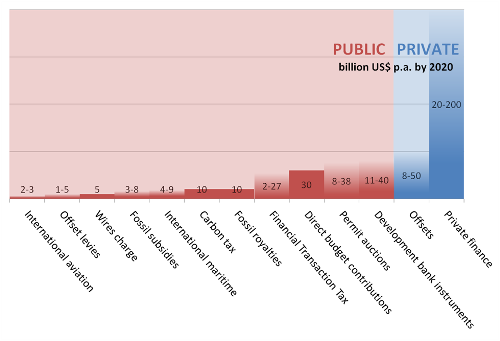One of the pleasures of my job is having a slew of superbly qualified prospective interns knock on our doors. Yesterday, I interviewed someone who graduated at the top of his class at Renmin University in Beijing.
There have been plenty of column inches written on “China versus the US,” including when it comes to green jobs and clean tech. So,
Who’s going to come out ahead, China or the United States?
It took him nary a second to nail this one:
China, relatively. Both China and the U.S. in an absolute sense.
That’s the textbook answer.
The atmosphere wins
China has a lot of catching up to do. Comparatively, it will clearly gain on the U.S. But trade also has advantages for both parties involved. That’s why we trade in the first place.
The planet emerges as a winner as well. It doesn’t care where a ton of carbon gets emitted or where it gets reduced—just that reductions happen.
If China produces cheaper solar panels, we get fewer emissions overall. The planet wins. China wins. What about the U.S.?
What about jobs?
If you are among the 800 workers in Devens, MA, who last week found out that Evergreen Solar was moving its plant to China, you will feel very differently about free trade right about now. The textbook economic answer would say that the move can still make everyone better off: compensate the losers through portions of the gains from the winners, and everybody wins once again.
This situation, of course, is the moment when you throw out your textbook and think about the full consequences.
As a result of the move, solar panels will likely become even cheaper for everyone, enabling many more to buy them. Still, the Devens 800 will not be among the people lining up to buy cheaper solar panels.
What can they do? What should the U.S. do as a matter of policy?
First, we need to realize that the rules of trade still apply. China has lots of cheap labor. It does and will continue to manufacture many products sold in the U.S. Solar panels are no different.
But that’s still not a satisfying answer, nor is it the whole story—not for manufacturing itself, and not for the clean tech industry overall.
How to keep clean tech jobs in the U.S.
To get to the bottom of this, we need to look at the full supply chain for solar panels. This, of course, oversimplifies things, but we can split the entire process into three distinct buckets: inventing, producing, and installing.
Right now, the U.S. is inventing, China is producing, and it is the one installing the resulting solar panels domestically at massive scale.
The U.S. ought to do everything to make sure it keeps inventing clean tech products. That means a concerted push to fund basic research and development. But R&D subsidies alone won’t do.
Many mentions of “R&D” add a second “D” for deployment. Government support can get things going, but large-scale deployment of clean technologies won’t happen through subsidies alone (at least not without bankrupting the government).
So how do you get deployment up to scale?
Deployment clearly needs to be driven by demand. That’s where a cap on carbon pollution, with its resulting price on carbon, comes in. A cap helps create a more level playing field for solar and other renewable energy sources relative to fossil energy and, therefore, creates the necessary demand. (There are alternatives, like simply requiring a certain percentage of power to come from solar, but none is quite as cheap and flexible as a cap.)
Made in USA?
Moreover, cheap labor and cheaper production facilities may be a decisive factor, but they are not the only reason companies consider when choosing where to locate. There are many more, but let’s focus on two: intellectual property (IP) protection and being close to where the demand is.
The U.S. has a leg up on China in terms of IP protection. That’s, in part, why the U.S. (still) leads on R&D. It’s also a clear draw for some companies to locate their production facilities in the U.S.
Another oft-cited reason is to be close to consumers. That’s once again where the importance of the second “D”—deployment—comes in. The more demand there is for solar panels in the U.S., the more companies will locate their production plants in the U.S. as well. The case of First Solar supplying panels for Wal-Mart is a prime example. (Note that this is distinct from cheaper production leading to more demand in the first place.)
In the end, though, we must also be clear that jobs will be different in the new, cleaner economy. We will need fewer gas station attendants. Many other jobs will thrive. Underlying trade forces will mean that China may well be producing many of the solar panels sold globally. Assembling, installing, and maintaining solar panels in the U.S. will require plenty of skilled labor. And none of these jobs can be exported.
California leading
With the right policies in place, the U.S. will keep inventing. It will also create thousands of jobs dedicated to deployment. China will play a major role in producing, but even there, smart environmental policy can only help.
California is taking the lead with its Million Solar Roofs initiative, creating many a job assembling, installing, and maintaining solar panels. That initiative, though, still has to be paid for by tax dollars, and it won’t go on forever.
That’s where the cap on carbon kicks in. California is bound to stay ahead of the rest of the U.S. with its ambitious cap-and-trade system that starts on January 1, 2012 and the resulting market signal that says that clean tech pays in the U.S. as well.
Consider the just-released Next 10 report, Many Shades of Green, that found that in the most recent observable 12-month period (January 2008 – January 2009) jobs in the green sector grew more than three times faster than total employment in California. (Of course, all of this always comes with the warning that green sector jobs are still a small fraction of total jobs—much like IT jobs were a minuscule part of overall employment in the early 1980s.)
One of our internship spot may well end up going to a Chinese student, but that, too, can only be good for the planet—making a small contribution to help train the next generation of Chinese environmental leaders. And rest assured, there are plenty more open job positions (including one for a post-doc working with our economic team, open to anyone with a Princeton affiliation).










 That sentence alone should occupy legal scholars for years to come. Most economists would only applaud. Getting 190-odd countries to agree on anything is extremely difficult. Unanimous consent is almost always out.
That sentence alone should occupy legal scholars for years to come. Most economists would only applaud. Getting 190-odd countries to agree on anything is extremely difficult. Unanimous consent is almost always out. Yesterday’s New York Times published three terrific op-eds worth a second thought.
Yesterday’s New York Times published three terrific op-eds worth a second thought.